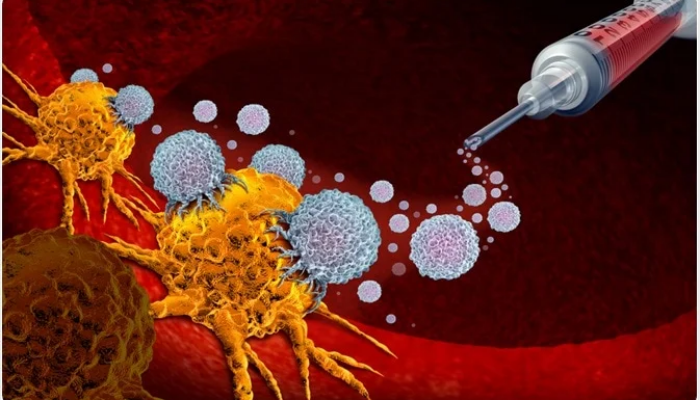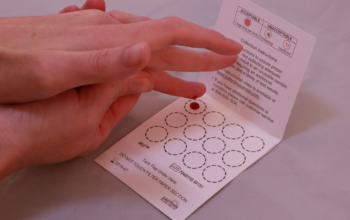Uzone.id — When we hear about treatments for diseases like cancer, one term that keeps popping up is immunotherapy.
Cancer immunotherapy originated in the late 1890s with a cancer surgeon named Dr. William B. Coley (1862–1936) now known as the Father of Immunotherapy.

Coley discovered that infecting cancer patients with certain bacteria sometimes resulted in tumor regression and even some complete remissions.
But what exactly is immunotherapy, and how does it work?
So, what is immunotherapy?
Immunotherapy is a type of treatment that helps your body’s immune system fight diseases.
“The immune system is our body’s natural defense system, and immunotherapy trains it to fight cancer just like it fights infections,” Dr. James Allison, a Nobel Prize winner and expert in immunotherapy.
Already discovered in the 1800s, immunotherapy is a standard treatment for some types of cancer and there are different types of immunotherapy, it includes monoclonal antibodies, checkpoint inhibitors, and vaccines.
Normally, your immune system defends you against things like infections, bacteria, and viruses but by this method, it is used for cancer.

It works by helping the immune system recognize and attack cancer cells even when they’re hiding from the immune system.
Immunotherapy is now used to treat a variety of serious illnesses. For cancer, research shows that immunotherapy has improved survival rates for cancers like melanoma by 15-20% compared to traditional treatments.
According to the National Institutes of Health, median survival has improved from approximately 6 months to nearly 6 years for patients with advanced inoperable stage IV disease.
Immunotherapy is also used to treat HIV. HIV cures could be functional (durable remission) or sterilizing (eradication).
“Immunotherapies to cure HIV could harness and enhance T-cell and B-cell responses. Combination immunotherapies are most likely to succeed in achieving an HIV cure,” quoted from Science Direct.
Another disease is autoimmune disorders. Immunotherapy is being tested for conditions like multiple sclerosis and lupus, aiming to balance the immune response without shutting it down completely.
So, how does Immunotherapy work?
Immunotherapy helps the immune system either get stronger or work smarter to fight harmful cells–including the hidden ones. There are several ways that it can do this, and each method works a bit differently to target diseases. Here are some of the main types:
Checkpoint Inhibitors: These drugs help “unmask” cancer cells. Cancer cells sometimes “trick” the immune system into thinking they aren’t dangerous, but using the checkpoint inhibitors method, can stop them from hiding. Once revealed, the immune system can attack and destroy the cancer cells.
CAR-T Cell Therapy: According to clinical trials, CAR-T therapy has led to remission in around 80% of certain leukemia patients who didn’t respond to other treatments.
This is a more personalized type of therapy. Doctors take a patient’s T cells (a part of their immune system), strengthen them in a lab, and put them back into the patient’s body to help fight cancer cells more effectively.
Cancer Vaccines: Just like vaccines protect you from diseases like the flu, some immunotherapy vaccines are designed to help your immune system fight off specific types of cancer.
This treatment is still ongoing research, but early trials have shown that some cancer vaccines can extend life expectancy in patients.
Why Is Immunotherapy Important?
One of the most exciting things about immunotherapy is that it’s not just about treating the symptoms of a disease—it’s about helping your body cure itself.
Immunotherapy can sometimes offer a longer-lasting solution than traditional treatments like chemotherapy or radiation, which attack the disease but can also damage healthy cells.
“Immunotherapy is revolutionizing cancer treatment by offering a more targeted approach, reducing side effects, and sometimes even leading to complete remission,” said Anc Dr. Padmanee Sharma, a leading immunotherapy researcher.
Cancer Research Institute stated that although scientists haven’t yet mastered all the immune system’s cancer-fighting capabilities, immunotherapy is already helping to extend and save the lives of many cancer patients.
“Immunotherapy holds the potential to become more precise, more personalized, and more effective than current cancer treatments—and potentially with fewer side effects. Learn more about how you can support breakthroughs in cancer immunotherapy research,” they added.
For many patients, immunotherapy has provided new hope when other treatments have failed.
The Future of Immunotherapy
Immunotherapy isn’t just for cancer—it’s also being explored as a treatment for other diseases, including autoimmune disorders, viral infections, and even allergies. Researchers are currently investigating how immunotherapy could be used to tackle conditions like multiple sclerosis, HIV, and asthma.
In the coming years, we’ll see immunotherapy being used for a broader range of diseases, and it may even become a frontline treatment for conditions that were previously untreatable.
















